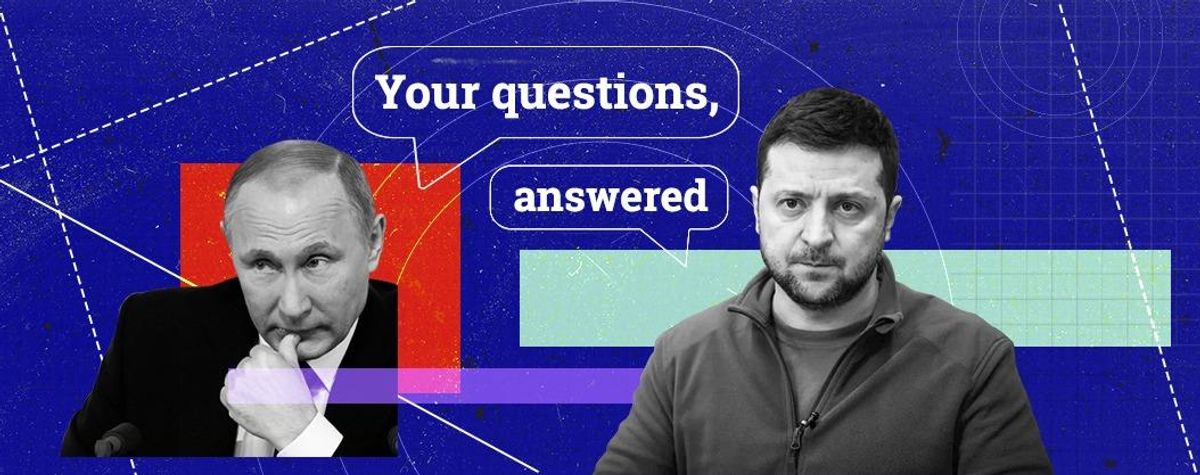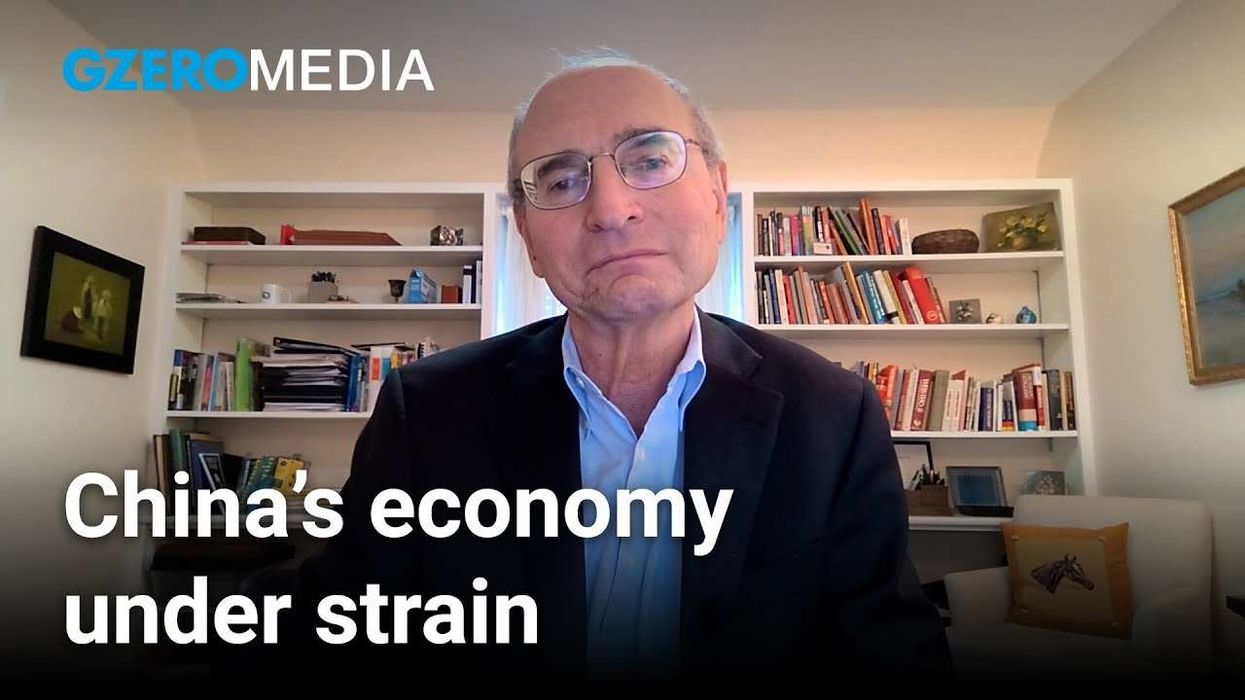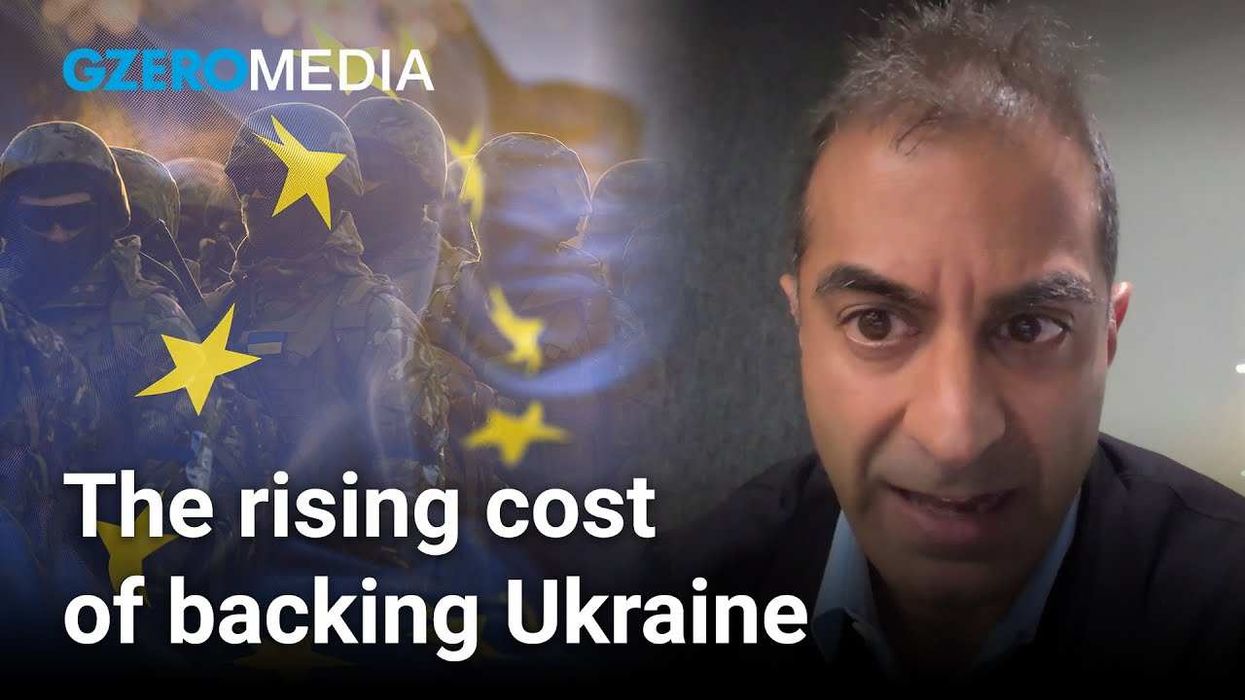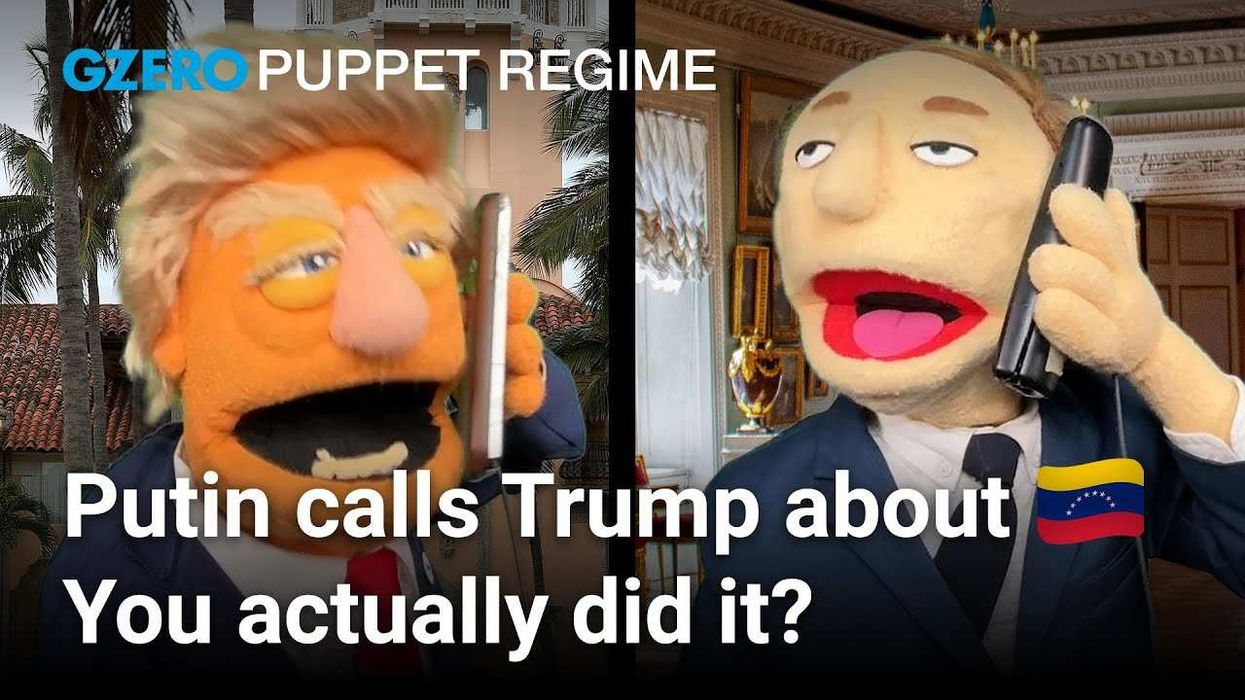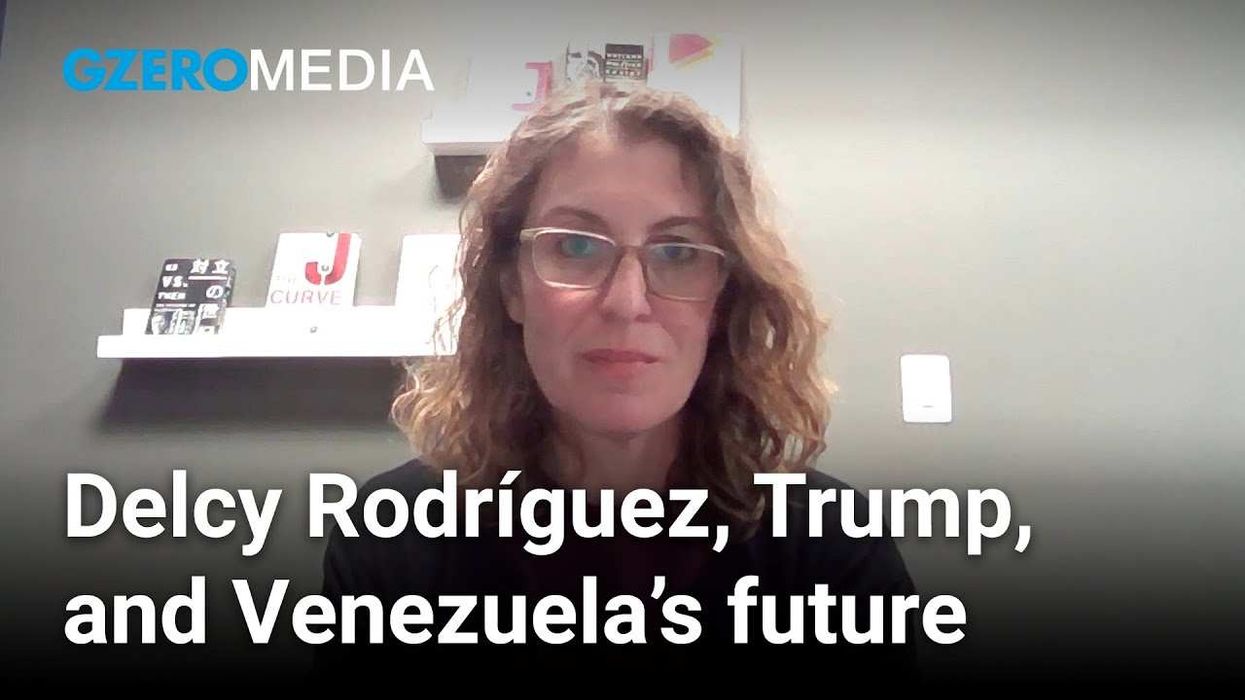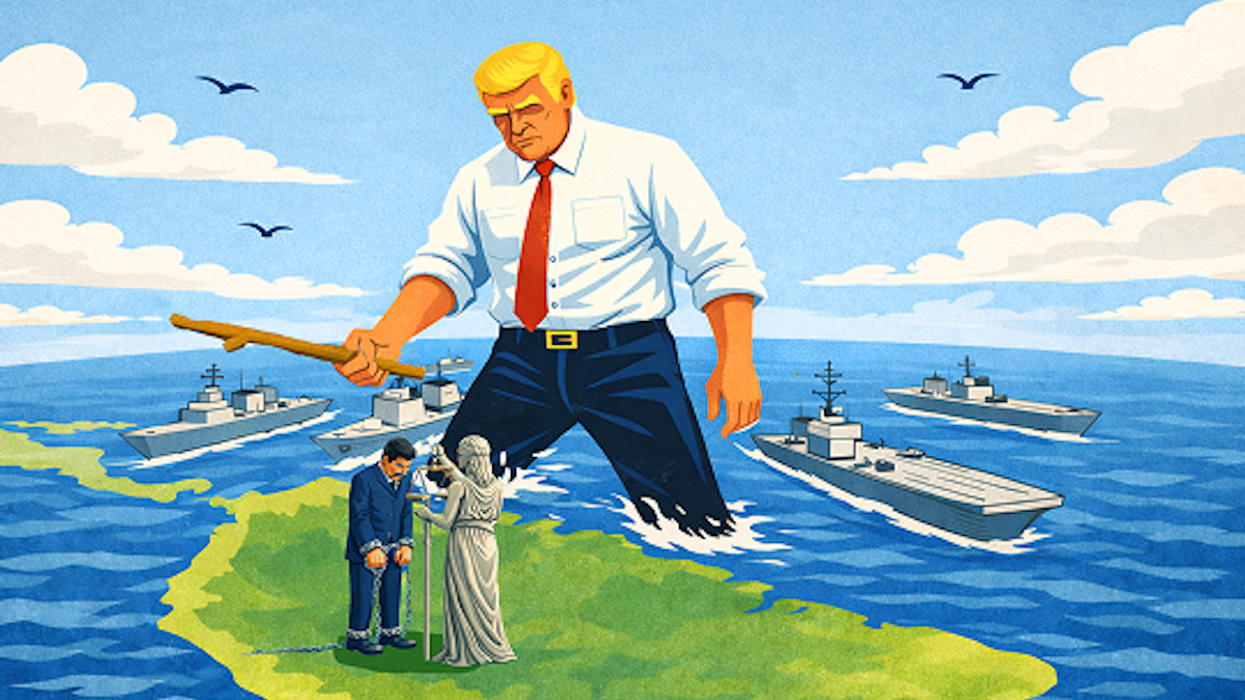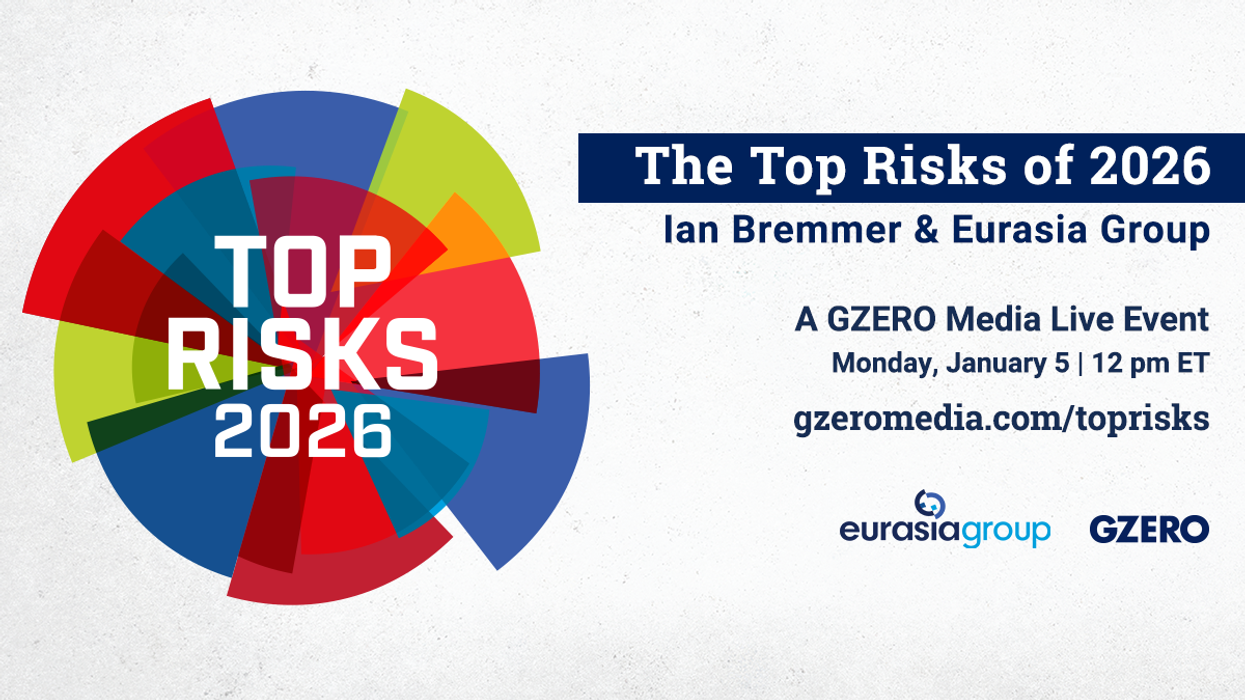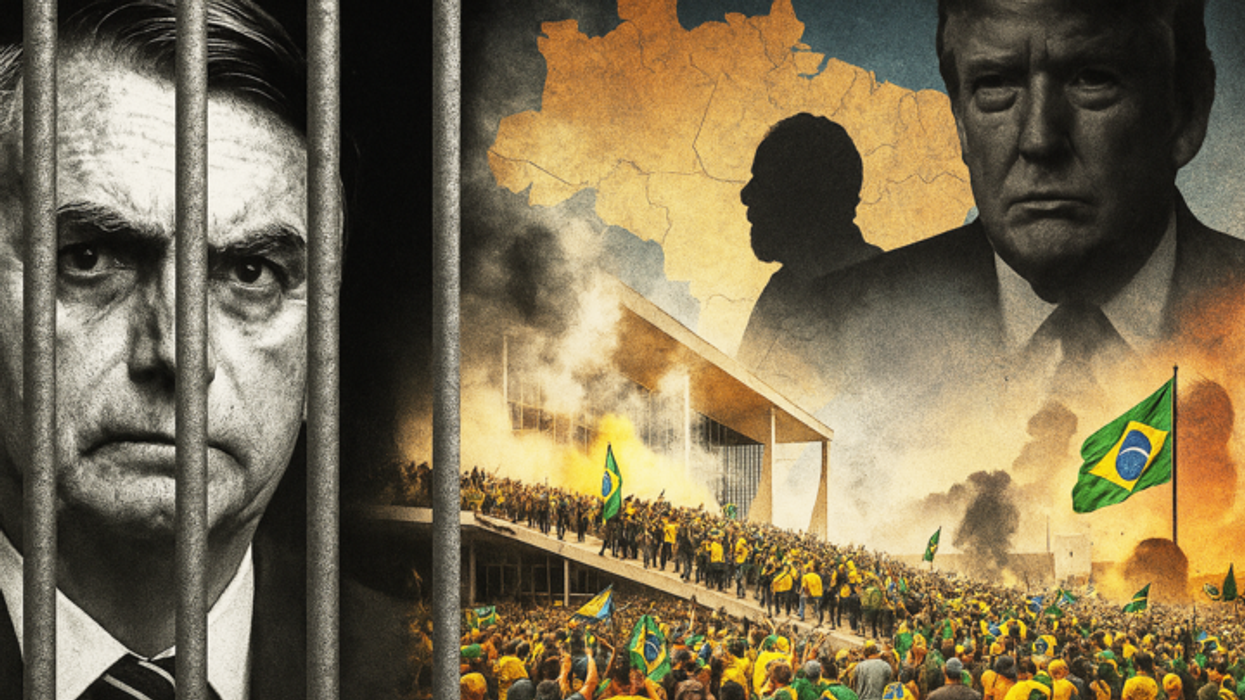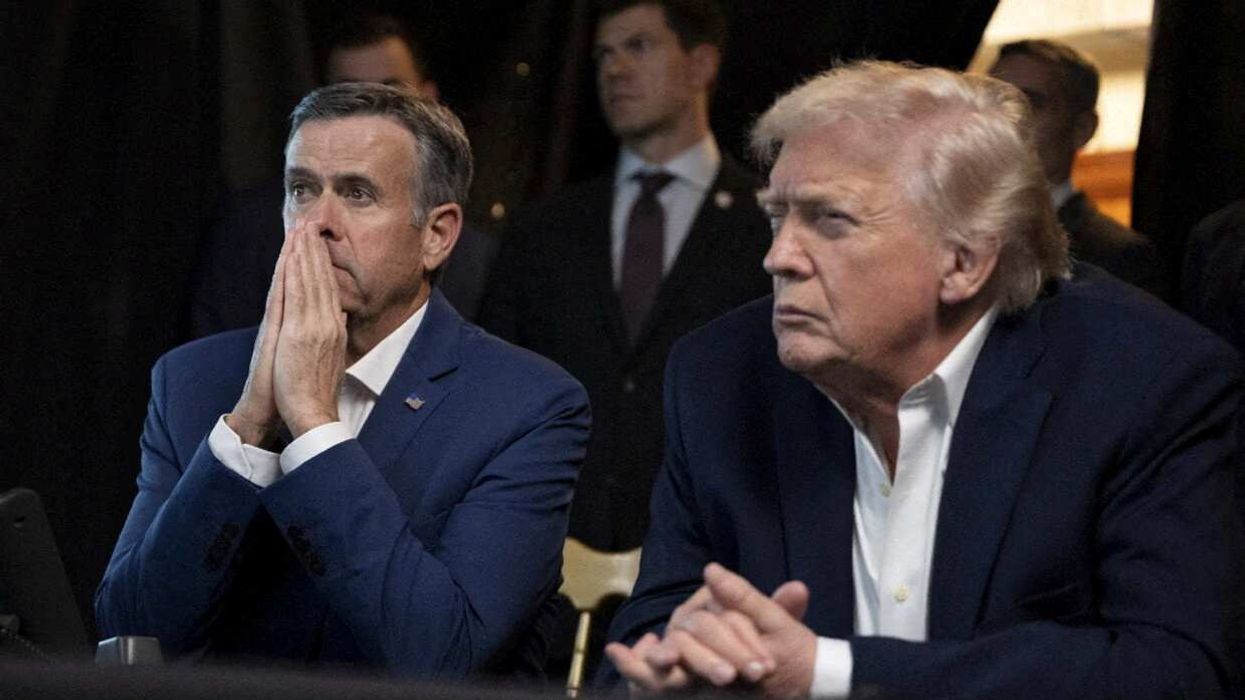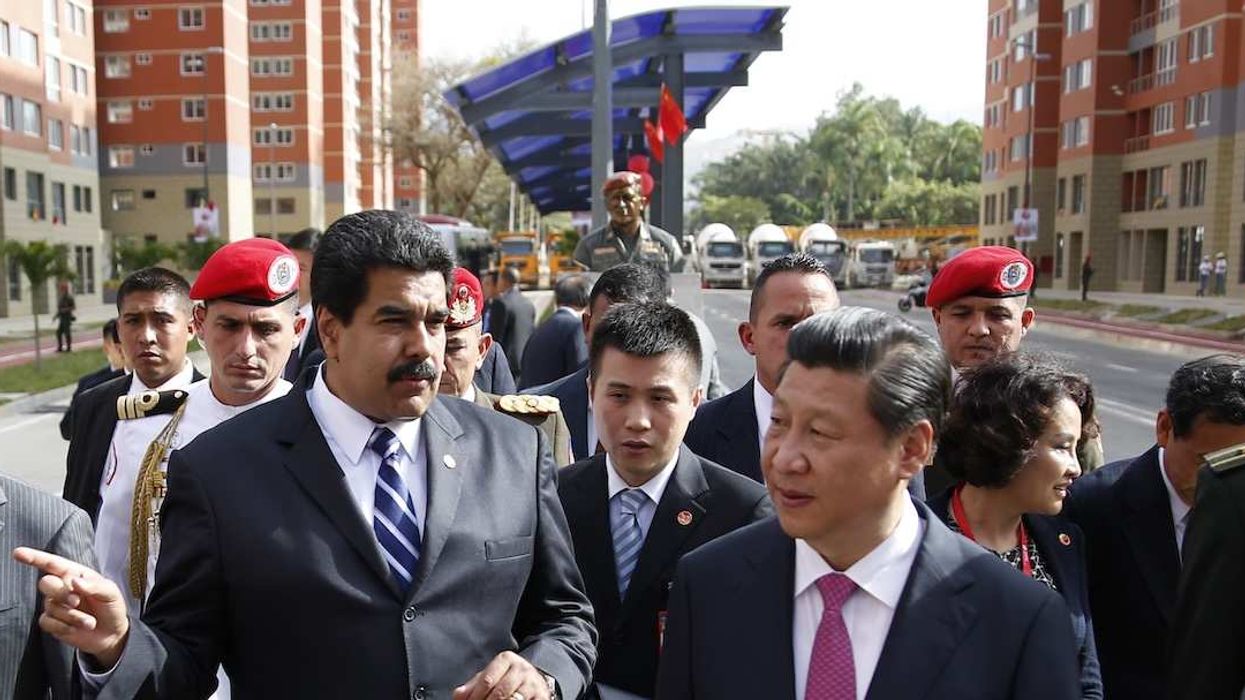You asked, I answer.
Note: This is the third installment of a four-part series responding to reader questions on Russia-Ukraine. You can find the first part here, the second part here, and the fourth part here. Some of the questions that follow have been slightly edited for clarity. If you have questions you want answered, ask them in the comments section below or follow me on Facebook, Twitter, and LinkedIn and look out for future AMAs.
Want to understand the world a little better? Subscribe to GZERO Daily by Ian Bremmer for free and get new posts delivered to your inbox every week.
Would you say that it is democracy in Ukraine that the Russians fear most? (Bevan D)
They certainly fear it and the power of example it sets. Is a democratic Ukraine what they fear most, though? I don’t think I’d say that. Putin wouldn’t tolerate an independent Ukraine under any circumstance, even if its government was authoritarian, as long as it wasn’t subordinate to Russian control (Belarus authoritarianism is fine because it’s not sovereign). The main ideological motivation behind the war is his belief that the “Great Russian” nation naturally includes Ukraine.
Does Europe currently have a realistic alternative to buying Russian oil/gas? (Zach)
Not immediately, completely, or costlessly, but the alternatives are getting more realistic by the day. Europe has already found ways to replace roughly one-third of the energy they currently import from Russia this year, mostly by boosting supply from other sources. By 2024, they can be fully diversified away from Russia towards allied suppliers and renewable sources; if they cut off Russian gas entirely much sooner than that, the economic costs will be significant (albeit not catastrophic).
What do you think it would take for Germany to finally push for a total ban on energy imports from Russia, risking an economic recession? (Adrian R)
Time... The Germans now fully recognize that dependence on Russia was a severe strategic mistake. Within 2-3 more years, they will be able to source their energy elsewhere and cut Russia off with minimal economic repercussions. That’s not to say it can’t happen sooner than that—we’re seeing growing political pressure domestically and internationally for Germany to stop funding the destruction of Ukraine, and if Russia were to use chemical weapons, it’s likely they’d impose a total ban even at the risk of recession.
What are the U.S.’s and Britain’s obligations under the Budapest Memorandum? Are they meeting them? (Murali N)
Don’t forget about Russia’s obligations! They are also a signatory of the 1994 Budapest Memorandum on Security Assurances, which committed the three nuclear powers to respect and defend Ukraine’s territorial integrity in exchange for it giving up its nuclear arsenal. None of the parties are meeting their obligations under the agreement, least of all Russia (since the 2014 invasion). This breach obviously undermines the credibility of the U.S. and the UK, even if technically the memorandum was more a political commitment than a legally binding treaty. But Russia’s aggression is on a whole different level of illegality (and immorality).
If there is a negotiated settlement, what is it worth? Hasn't the US already demonstrated it is unwilling to honor its security guarantee to Ukraine? (David A)
After a brutal war, it would be worth a lot more because the stakes would be higher... and presumably there would be collective support/security among signatories to enforce it. By the way, if you’re referring to the 1994 Budapest Memorandum, it was all three signatory countries that proved unwilling to honor their security guarantees to Ukraine: Russia, the UK, and the U.S. As the aggressor, Russia was by far the worst offender here.
Why would the West remove sanctions on Russia before the Russians take Putin out and agree to serious reforms? (Nart M)
If Russia were to withdraw from all Ukrainian territory (including the parts of the Donbas they’ve been illegally occupying since 2014)—a massive if—I could see at least some sanctions being removed (and Russian assets unfrozen), especially if the Ukrainian government agreed to it (needless to say, the Ukrainians should have some agency over the process). But I can’t see a “West” (i.e., advanced industrial democracies) that considers Putin a war criminal ever rebuilding “business as usual” economic or diplomatic relations with Russia as long as he remains in power.
Why didn’t Putin invade sooner, knowing that Ukrainians were being trained by NATO and Trump was a perfect ‘neutralizer’ of US/NATO/EU responses? (Jorge O)
For one, Merkel was still on the scene—a strong European leader upholding the rule of law vis-à-vis Russia in Ukraine—and Russia’s energy leverage in Europe was somewhat more limited. Nord Stream 2 didn’t exist. And while Trump was indeed a transactional isolationist with an affinity for dictators like Putin and a dislike of NATO who would’ve weakened transatlantic cooperation, he was also incredibly unpredictable in the face of perceived threats. Putin clearly did not want to risk it.
Why are Western countries that perpetrated crimes against humanity like the colonization of Africa, the slave trade, and the Iraq War worthy of condemning Russia? What do you answer critics who say all the hysteria is simply because white people are being killed? (Sebastian S)
The West has engaged in all sorts of atrocities—the slave trade, apartheid, the Holocaust, etc. But it’s widely recognized these were crimes against humanity; laws have been changed and wars have been fought to ensure these countries can’t perpetrate such acts again. The case of Iraq is a more recent and fair example. Clearly it was an unjust war, but it was an unjust war against a horrible dictator committing crimes against his own people (I’d argue that removing Saddam during the first Gulf War, after his invasion of Kuwait, would’ve been justified). At face value, you can’t say it’s morally equivalent to the Russian invasion of Ukraine. Plus, the United States didn’t target civilians there. Many were killed, yes, but that wasn’t in any way the intention of the war. Unlike Russia’s war in Ukraine, which deliberately targets civilians. And many of the Americans that perpetrated war crimes ended up in American prisons, because the acts they committed were recognized to be illegitimate and against the law. That won’t happen to Russian war criminals. There’s no question there’s more media and political attention being paid to the war in Ukraine because it is happening in Europe, and there’s certainly a racial element to that. Which says deeply disturbing things about humanity today. But there’s also very good reasons to emphatically condemn Russia’s war against Ukraine that have nothing to do with ethnicity and skin color.
What is your favorite food or the unique cultural feature that you miss most from living in or visiting Russia and Ukraine? (Chap M)
Boy, do I miss borscht (which despite Russian attempts to nationalize it is Ukrainian... Russian soup is shchi, similar but with cabbage rather than beets). I also love tvorog in the morning, the uniquely Russian yogurt/cottage cheese, and homemade jam with tea in the afternoon. Kyzyl jam was my favorite, really from Central Asia but you find it all over the place in Russia. As for cultural features, it’s the relationships that matter most in Russia. I miss walking around Mayakovsky Park and hitting cafes with friends at all hours of the day.
🔔 And if you haven't already, don't forget to subscribe to my free newsletter, GZERO Daily by Ian Bremmer, to get new posts delivered to your inbox.
